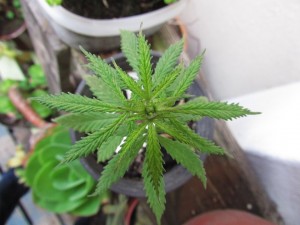 It isn’t just U.S. states that are ready to jump on board – if they haven’t already – with legalizing marijuana. Legislators in the Commonwealth of the Northern Mariana Islands (CNMI), a U.S. territory, recently approved a bill to legalize marijuana.
It isn’t just U.S. states that are ready to jump on board – if they haven’t already – with legalizing marijuana. Legislators in the Commonwealth of the Northern Mariana Islands (CNMI), a U.S. territory, recently approved a bill to legalize marijuana.
By a margin of 18-1, with just one abstention, the CNMI House of Representatives passed the legislation. This piece of legislation seeks to end cannabis prohibition for adults over 21 and creates a system of taxed and regulated sales. It would also welcome medical marijuana and industrial hemp.
This is not the first time that the territory pushed for legalization. In May, the Senate approved a similar marijuana legalization bill. The proposal initially cleared a committee in the House, but its advancement was later halted in response to procedural concerns. It was said that revenue-generating legislation must originate in the House.
As a result, House lawmakers made a few changes to the Senate bill and filed a new proposal of their own. This piece of legislation then won approval by the full chamber.
“The people of the CNMI recognize that the prohibition of marijuana has been terribly misguided and harmful, and our leaders are in touch with the public’s sentiment on this issue,” Lawrence Duponcheel of Sensible CNMI said in a statement.
“Today, members of the CNMI House of Representatives showed their commitment to honoring the will of the people.”
If this bill is successfully enacted, CNMI will become the first U.S. jurisdiction to go directly from outlawing marijuana across the board to allowing recreational use. This is very unique, considering that the territory has no existing medical cannabis program; this is something that has been a precursor to broader legalization in a growing number of states.
It will also be an important milestone because it would make CNMI the first to legalize a system of regulated cannabis production and sales through an act of lawmakers, rather than a ballot measure. (Vermont passed a law earlier this year to legalize marijuana possession and home cultivation, however, the policy does not allow for any form of cannabis commerce.)
Justin Strekal, political director for NORML, commented on marijuana reform’s growing popularity with voters in an interview, saying that “The lawmakers and people of CNMI are on track to make history, and more U.S. policymakers would be wise to take notice before the upcoming midterm elections.”
The next step? The CNMI Senate is now expected to take on the House-passed marijuana legalization bill. These changes have the potential to open up enormous opportunity. Are you hoping to expand your operation or launch your business venture? Consider working with the team at Marijuana Merchant Account and jump in on the expansion of the marijuana industry.


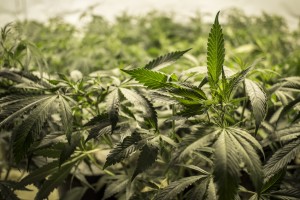 Federal Banking Rules Not Working In Favor Of The Legal Cannabis Industry
Federal Banking Rules Not Working In Favor Of The Legal Cannabis Industry
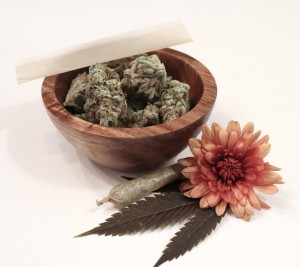 Years before U.S. states began legalizing recreational marijuana, many people were arguing that the government should legalize marijuana and then tax and regulate it. The government would then be able to bring in heaps of cash. Their argument was that this would also be beneficial to the legal marijuana industry. It would suffocate the illicit market, and people would buy the legal product because the product sells itself.
Years before U.S. states began legalizing recreational marijuana, many people were arguing that the government should legalize marijuana and then tax and regulate it. The government would then be able to bring in heaps of cash. Their argument was that this would also be beneficial to the legal marijuana industry. It would suffocate the illicit market, and people would buy the legal product because the product sells itself. As each state legalizes medical and/or recreational marijuana, much has been said about the issue of money. Despite the continued federal prohibition, the marijuana industry has grown rapidly. The emerging market brought in nearly $9 billion in sales in 2017, according to managing director of BDS Analytics, Tom Adams. With the POaddition of the Golden State, it is estimated that this number will increase to $11 billion in 2018.
As each state legalizes medical and/or recreational marijuana, much has been said about the issue of money. Despite the continued federal prohibition, the marijuana industry has grown rapidly. The emerging market brought in nearly $9 billion in sales in 2017, according to managing director of BDS Analytics, Tom Adams. With the POaddition of the Golden State, it is estimated that this number will increase to $11 billion in 2018. Cash is King, but having a multibillion-dollar industry rely entirely on it can be a struggle! The whistleblower, Senator Cory Booker pointed out an issue that lawmakers must mull over. He says businesses, even those that sell medical cannabis cannot obtain bank accounts, access funds or issue payroll – even in a place like New Jersey, where medical marijuana has been legal for almost a decade (since 2010). All these because marijuana is still classified as Schedule I under federal law.
Cash is King, but having a multibillion-dollar industry rely entirely on it can be a struggle! The whistleblower, Senator Cory Booker pointed out an issue that lawmakers must mull over. He says businesses, even those that sell medical cannabis cannot obtain bank accounts, access funds or issue payroll – even in a place like New Jersey, where medical marijuana has been legal for almost a decade (since 2010). All these because marijuana is still classified as Schedule I under federal law.
 The Marijuana industry is performing beyond everybody’s expectations. Some have even labeled the cannabis business the “second gold rush” after discovering a few marijuana-made millionaires. Colorado boasts of a few entrepreneurs who can be said to have reached the top of the business ladder, some even featuring in one of the weekly editions of the People’s Magazine under a title “Colorado Marijuana Millionaires.”
The Marijuana industry is performing beyond everybody’s expectations. Some have even labeled the cannabis business the “second gold rush” after discovering a few marijuana-made millionaires. Colorado boasts of a few entrepreneurs who can be said to have reached the top of the business ladder, some even featuring in one of the weekly editions of the People’s Magazine under a title “Colorado Marijuana Millionaires.”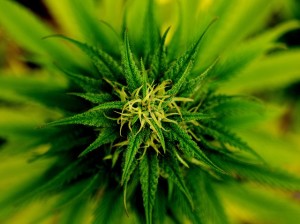 Early this month, President Donald Trump shared that he was leaning towards
Early this month, President Donald Trump shared that he was leaning towards 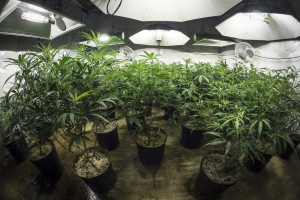 Early this month, President Donald Trump shared that he was leaning towards supporting new bipartisan marijuana legislation – delivering a blow to Attorney General Jeff Sessions. U.S. Attorney General Jeff Sessions has been an outspoken opponent of marijuana. He lifted an Obama administration policy and freed federal prosecution to more aggressively pursue cases in states where marijuana has been legalized.
Early this month, President Donald Trump shared that he was leaning towards supporting new bipartisan marijuana legislation – delivering a blow to Attorney General Jeff Sessions. U.S. Attorney General Jeff Sessions has been an outspoken opponent of marijuana. He lifted an Obama administration policy and freed federal prosecution to more aggressively pursue cases in states where marijuana has been legalized. Canada has just become the second country to permit widespread sales and use of cannabis. Legislation approved early this month pushed the country one step closer to making it a reality. Just days ago, on June 19, Canadian lawmakers announced that they had approved landmark legislation to fully legalize marijuana.
Canada has just become the second country to permit widespread sales and use of cannabis. Legislation approved early this month pushed the country one step closer to making it a reality. Just days ago, on June 19, Canadian lawmakers announced that they had approved landmark legislation to fully legalize marijuana.